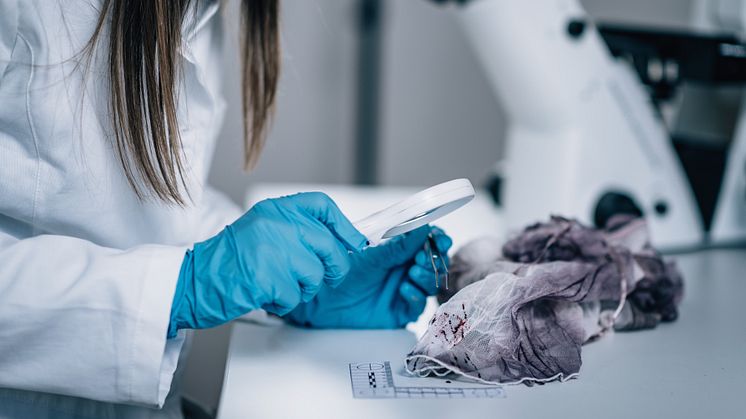
Press release -
Forensic science on trial
Academics from Northumbria University have provided written and oral evidence for a Parliamentary investigation into the quality and reliability of forensic science within the UK legal system.
The House of Lords Science and Technology Select Committee sought the advice of experts from Northumbria Law School and the Department of Applied Sciences as part of a hard-hitting report entitled Forensic Science and the Criminal Justice System: A Blueprint for Change.Identifying a number of challenges, the report focused on issues including a lack of understanding, poor leadership, inadequate funding and regulatory powers, and a lack of access to forensic science experts for defence lawyers.
Dr Gillian Tully, the Forensic Science Regulator, has warned the system in England and Wales was reaching crisis point following sweeping budget cuts and an increasingly fragmented marketplace for forensic science service providers.
Having taken expert evidence, including that of Northumbria academics through the work carried in through the University’s Science and Justice Research Interest Group, the House of Lords Select Committee has recommended that the Forensic Science Regulator’s role is “reformed, expanded and resourced, and urgently given a number of statutory powers” to regulate the forensic science market.
Sophie Carr, Associate Head of Applied Sciences at Northumbria, said: “We are also in agreement with the Committee’s concerns for the trustworthiness and resilience of forensic science provision in England and Wales. As a focus for our research in expert evidence we are already working closely with the Forensic Science Regulator, having co-authored publications identifying the components necessary to enable critical trust in forensic science evidence and to demonstrate the evaluative validity of expert opinions. We are also working with esteemed colleagues at Cambridge and Dundee to provide training and resources for legal professionals to understand scientific methodology and statistics. We are therefore well placed to assist the House of Lords Select Committee, and as they have included a number of our recommendations in the report our contribution has been beneficial.
Professor Carole McCartney from Northumbria Law School, who gave oral evidence to the Committee, added: “Blueprint for change stresses throughout the many challenges including a lack of leadership and funding, ongoing problems with regulation and the forensic science market. It singles out digital forensics as an area of concern, but also covers issues with defence access to experts, and legal professionals’ understanding of forensic science. It takes a holistic view of the forensic science landscape in the UK and recommends the creation of the Forensic Science Board, the expansion of the role of the Forensic Regulator, increasing funding for research and Legal Aid for experts and finally, the creation of a National Institute for Forensic Science.
“Providing evidence to the House of Lords reflects the depth of expertise and the quality of the cross disciplinary research here at Northumbria in forensic science and law. The findings of our research are not only being recommended by the House of Lords in their report, they are also helping to shape policy.”
Dr Gillian Tully is a visiting Professor at Northumbria and is delivering a public lecture at the University on May 7, which will be of interest to those with an interest in forensic science, law and policing.
Topics
Northumbria is a research-rich, business-focused, professional university with a global reputation for academic excellence. To find out more about our courses go to www.northumbria.ac.uk
If you have a media enquiry please contact our Media and Communications team at media.communications@northumbria.ac.uk or call 0191 227 4604.






